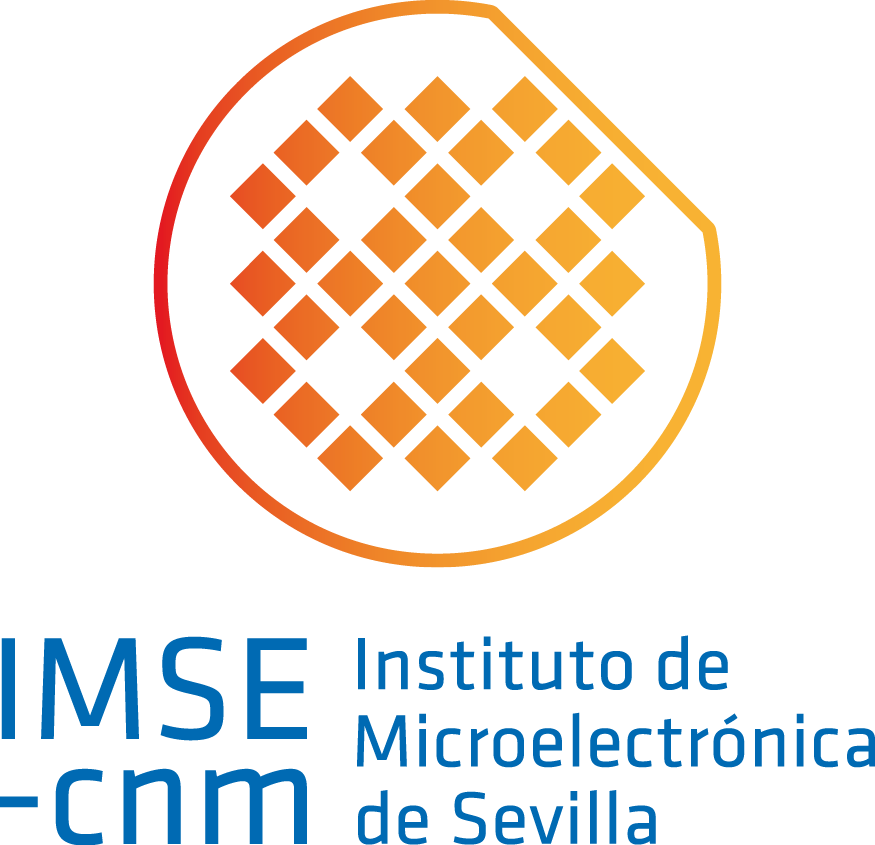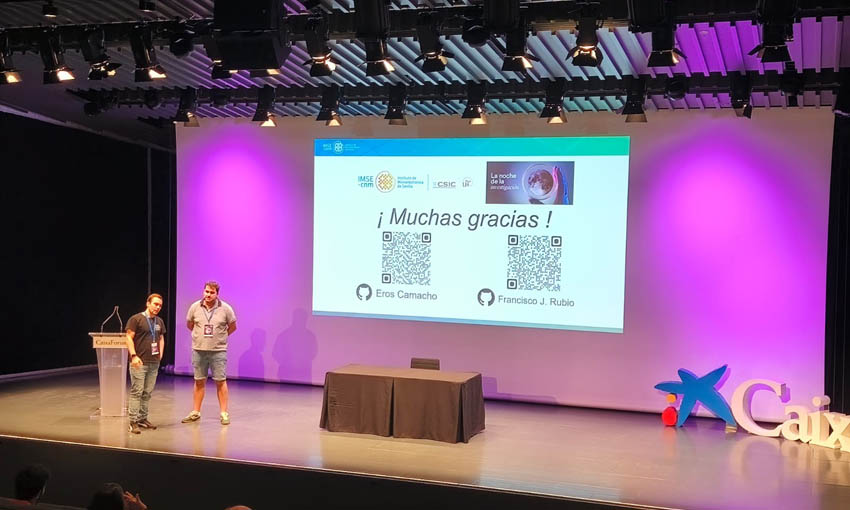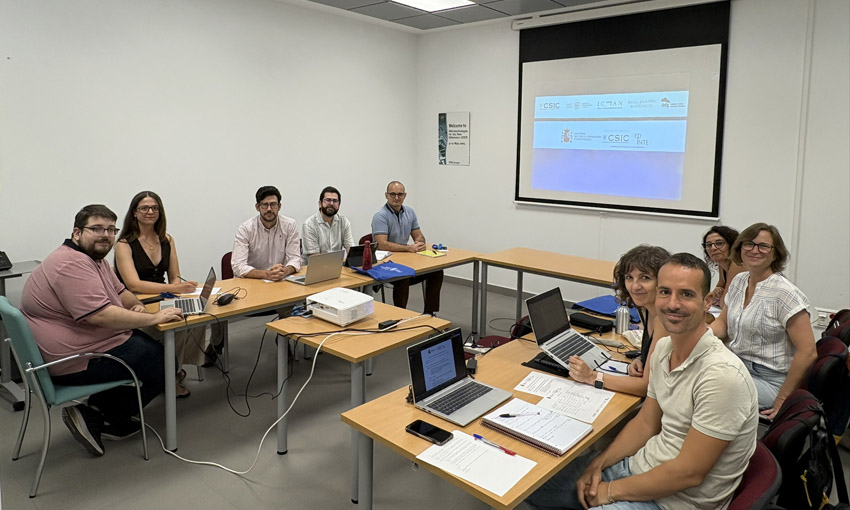


Implementando conceptos innovadores en silicio


Desde el IMSE llevamos a cabo varias actividades para poner en valor en papel de las investigadoras de nuestro centro.
2 Marzo 2026

"Science is Wonderful!", la Feria Internacional de la Ciencia organizada por la Comisión Europea, se celebrará en Bruselas los próximos 18, 19 y 20 de marzo de 2026, y volverá a contar por tercer año consecutivo con la participación de un equipo de investigadores del Instituto de Microelectrónica de Sevilla (IMSE-CNM).
3 Noviembre 2025

El talento investigador del IMSE vuelve a destacar con el Premio "Leonardo Torres Quevedo" concedido a Pablo Navarro por su Trabajo de Fin de Máster que profundiza en la seguridad y eficiencia de algoritmos criptográficos.
31 Octubre 2025

El Instituto de Microelectrónica de Sevilla conectó con la ciudadanía a través de dos actividades que combinaron entretenimiento y aprendizaje científico, acercando la microelectrónica y la ciberseguridad de manera interactiva y participativa.
3 Octubre 2025

Durante los días 18 y 19 de septiembre, el Instituto de Microelectrónica de Sevilla acogió el MENTORING REDINTER, un encuentro organizado conjuntamente por varias oficinas de proyectos y de internacionalización del CSIC.
22 Septiembre 2025

La biodiversidad está atravesando una crisis sin precedentes en la historia reciente del planeta. Cada vez más especies animales ven reducidas sus poblaciones y, en muchos casos, se enfrentan a la extinción. Esta pérdida de biodiversidad es uno de los grandes retos de nuestro tiempo, pero ¿qué podemos hacer para proteger las especies que habitan nuestro planeta?
9 Septiembre 2025
Assessment of an FPGA Implementation of a Hybrid PUF Based on a Configurable Transient Effect Ring Oscillator and Ring Oscillator (TERORO-PUF)
A. Casado-Galán, J. Núñez, E. Tena-Sánchez, F.E. Potestad-Ordóñez and A.J. Acosta-Jiménez
Journal Paper · Electronics, vol. 15, no. 3, article 661, 2026
MDPI ISSN: 2079-9292
resumen
doi
Enhancing the performance of HfO2-based memristors with a thin Al2O3 layer: a comparative study
M. Shooshtari, T. Serrano Gotarredona and B. Linares-Barranco
Journal Paper · Journal of Physics D: Applied Physics, vol. 58, no. 45, 2025
IOP Science
resumen
doi
A Side-Channel Protected and High-Performance Hardware Implementation for EdDSA25519
P. Navarro-Torrero, E. Camacho-Ruiz, M.C. Martínez-Rodríguez and P. Brox
Journal Paper · IEEE Access Vol 13
IEEE ISSN: 2169-3536
resumen
doi
Workload Compression Techniques to Scale Defect-Centric BTI Models to the Circuit Level
A. Santana-Andreo, V.M. van Santen, R. Castro-López, E. Roca, H. Amrouch and F.V. Fernández
Journal Paper · IEEE Transactions on Circuits and Systems I: Regular Papers (Early Access), 2025
IEEE ISSN: 1549-8328
resumen
doi
El área de especialización del Instituto es el diseño de circuitos integrados analógicos y de señal mixta en tecnología CMOS, así como su uso en diferentes contextos de aplicación tales como dispositivos biomédicos, comunicaciones inalámbricas, conversión de datos, sensores de visión inteligentes, ciberseguridad, computación neuromórfica y tecnología espacial.
La plantilla del IMSE-CNM está formada por unas cien personas, entre personal científico y de apoyo, que participan en el avance del conocimiento, la generación de diseños de alto nivel científico-técnico y la transferencia de tecnología.